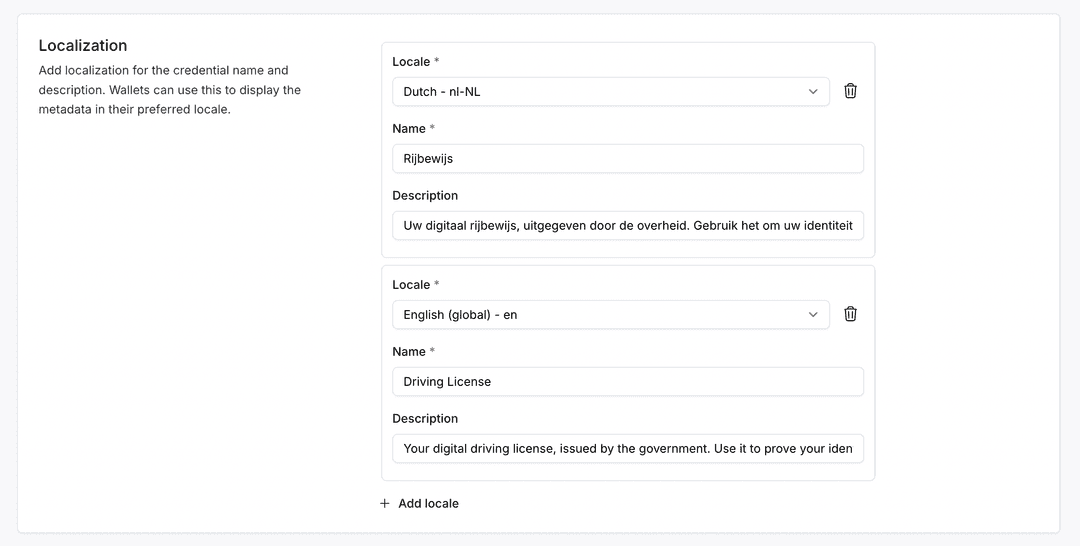With this release, we're introducing two new features that allow you to integrate your OpenID4VC issuance flow with existing systems: Authorization Servers, and Attribute Providers.
Authorization servers are external OAuth 2.0 servers that you can integrate with Paradym to add an additional layer of authentication during the credential issuance process. When an authorization server is configured, users must authenticate with that OAuth 2.0 server before they can receive their credentials. This allows you to gate credential issuance behind your own authentication system or a third-party identity provider.
Attribute providers are external HTTPS endpoints that Paradym can call during OpenID4VC issuance to fetch attribute values for a credential. This lets you keep your source of truth in existing systems and populate credentials dynamically, instead of sending all attribute values when creating an offer. This avoids storing any attribute data in Paradym at all.
To learn more about these features, please check out the Authorization Servers and Attribute Providers documentation.

